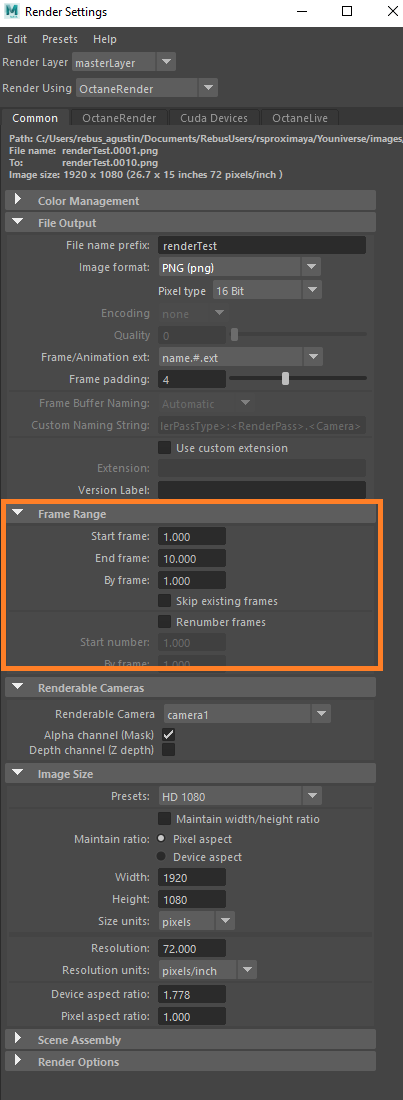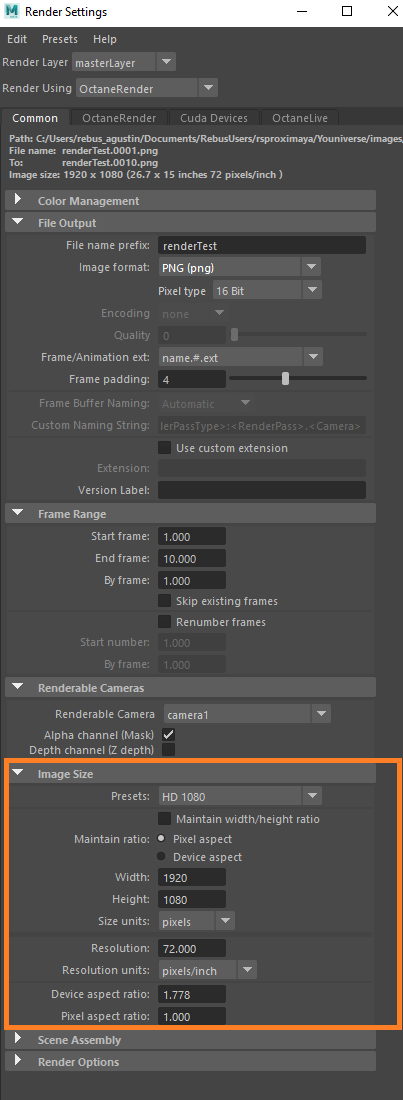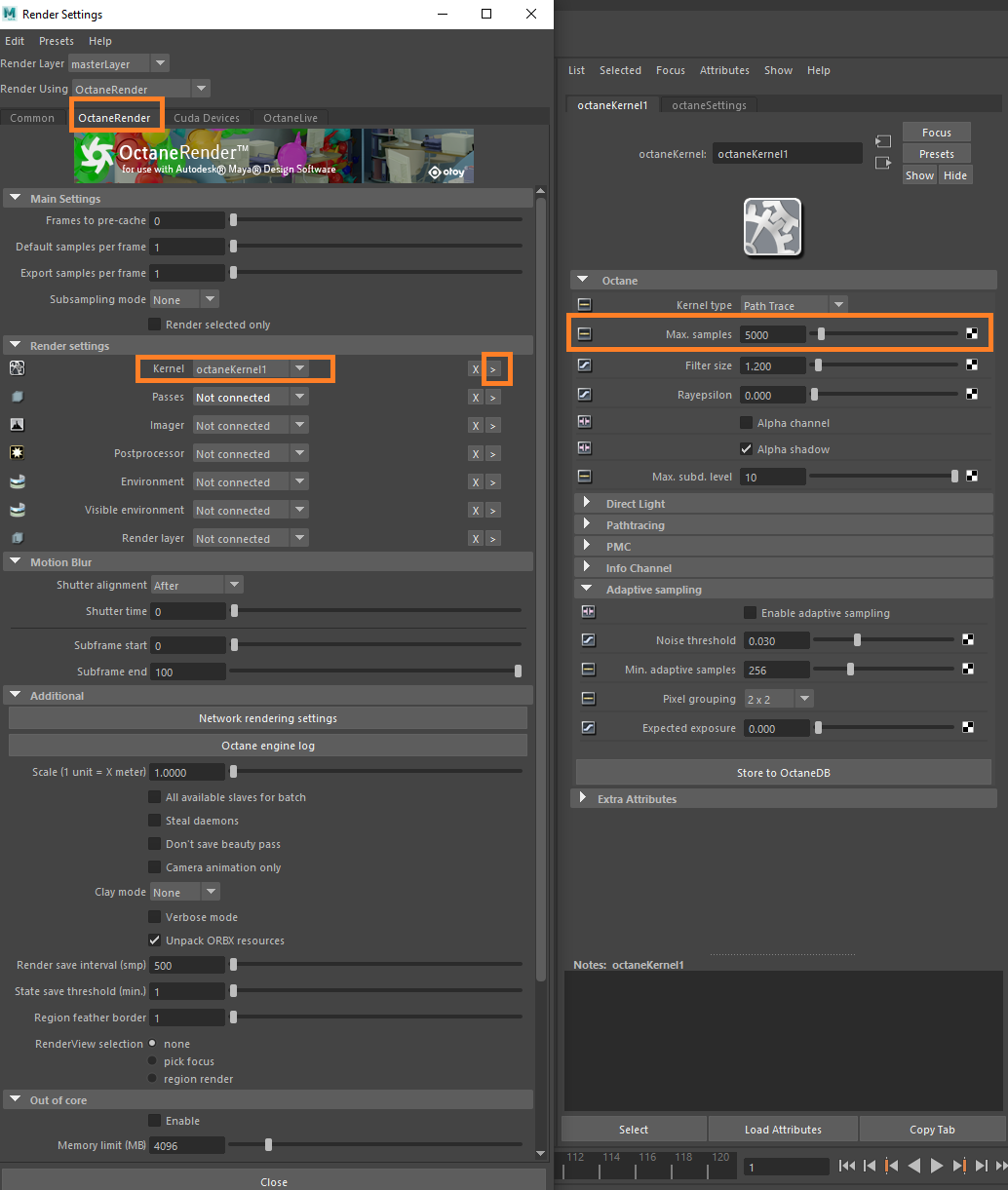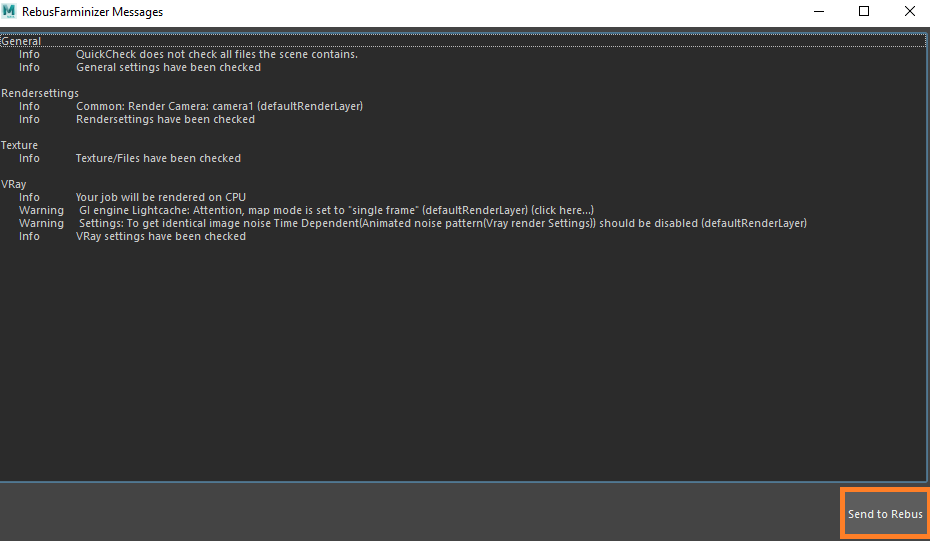How to upload a job using Maya and Octane Renderer
Open the scene that you want to render online in Maya with Octane Renderer.
Open the Maya render settings and set a name for the output under the 'File Output' tab.

Set an output format for the images that you want to render online.
Under the 'Frame Range' dropdown, set if you want to render a single frame or an animation.
In the 'Image Size' tab, set the resolution for the results of the job that you want to render online.

Under the 'Octane Render' tab, set the 'Max samples' values. This parameter will affect the render time and the render quality but they also depend on your scene, so please do some local tests before submitting the job to the render cloud.

Close the Maya render setup and open the RebusFarm setup window via the RebusFarm shelf.

Please refer to 'Maya Job Submission' for more detailed information about each of the options of the RebusFarm setup window.
After configuring your RebusFarm settings, please click on the button 'Render now' at the bottom of the RebusFarm setup window.

A new window will open for RebusFarm messages, showing all the relevant information, warnings, and errors your scene may have.
If you don’t get an error message, please proceed by clicking on 'Send to RebusFarm' to upload your job to render online.
The Rebus Farminizer will upload your render job including all the assets required for rendering. You can check the progress of the upload and rendering by visiting the ControlCenter. Once the upload process is completed, the rendering process will start automatically if you activated the 'Autostart render' option before uploading. If not, you will have to start the rendering manually by clicking on the 'Start render' button in the ControlCenter. Check our 'How to use the ControlCenter' section for more details about the ControlCenter.
Once the render job is completed, your results will automatically be downloaded from the render cloud to the output save path that you set in your render configuration.
